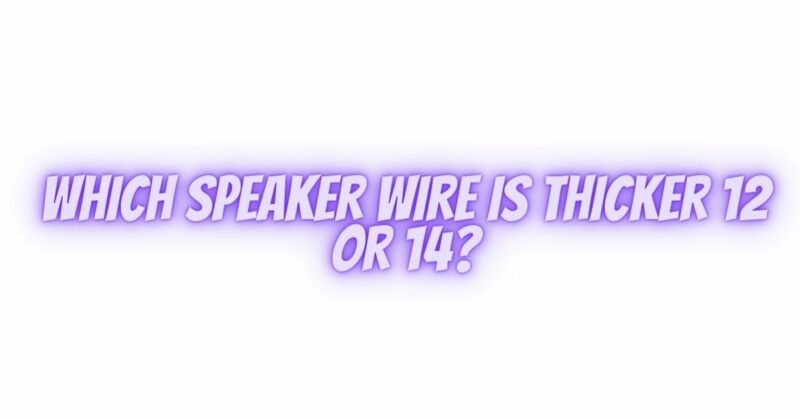When it comes to setting up an audio system, selecting the right speaker wire gauge is crucial for optimal performance. Two common wire gauges used in audio systems are 12-gauge and 14-gauge. In this article, we’ll explore the differences between these two gauges and help you understand which one is thicker and how it affects your audio setup.
Speaker Wire Gauge Explained
Speaker wire gauge refers to the thickness of the wire’s conductive core. The American Wire Gauge (AWG) system is widely used to measure wire thickness. In this system, lower AWG numbers correspond to thicker wire, while higher numbers represent thinner wire. The choice of wire gauge can significantly impact the efficiency and performance of your audio system.
12-Gauge Speaker Wire
- Thickness: 12-gauge speaker wire is thicker than 14-gauge wire. It typically has a diameter of approximately 2.05 mm (0.081 inches).
- Applications: 12-gauge wire is commonly used for high-power audio systems, larger speakers, and longer cable runs. It can efficiently handle higher current levels without significant signal loss.
- Power Handling: Due to its thicker conductor, 12-gauge wire can handle more power, making it suitable for amplifiers with higher wattage outputs.
14-Gauge Speaker Wire
- Thickness: 14-gauge speaker wire is thinner than 12-gauge wire, with a diameter of approximately 1.63 mm (0.064 inches).
- Applications: 14-gauge wire is often used in moderate-power audio systems, smaller speakers, and shorter cable runs. It offers a good balance between power handling and flexibility.
- Power Handling: While not as robust as 12-gauge wire, 14-gauge wire can still handle moderate power levels effectively, making it suitable for most home audio applications.
Thicker Wire: 12-Gauge
When comparing 12-gauge and 14-gauge wire, 12-gauge wire is unquestionably thicker. Its larger conductor size results in lower electrical resistance, which allows it to handle more power and transmit signals more efficiently. This makes it an excellent choice for high-power audio systems where minimizing signal loss and maintaining audio quality are critical.
Considerations When Choosing Wire Gauge
When deciding between 12-gauge and 14-gauge speaker wire, consider the following factors:
- Amplifier Power: Match the wire gauge to your amplifier’s power output. Higher-powered amplifiers benefit from thicker wire, such as 12-gauge, to ensure efficient power delivery.
- Speaker Impedance: The impedance of your speakers influences the current drawn from the amplifier. Lower impedance speakers require thicker wire to accommodate increased current flow.
- Cable Length: Longer cable runs result in higher resistance. For extended cable runs, consider using thicker wire to minimize voltage drop and signal loss.
- Budget and Space: Thicker wire can be more expensive and less flexible than thinner wire. Consider your budget and installation constraints when choosing the appropriate wire gauge.
Conclusion
In summary, 12-gauge speaker wire is thicker than 14-gauge wire, making it better suited for high-power audio systems and applications where signal integrity is paramount. However, the choice of wire gauge should align with your specific audio system’s requirements, including amplifier power, speaker impedance, and cable length. By selecting the right wire gauge, you can ensure optimal performance and audio quality in your setup.


